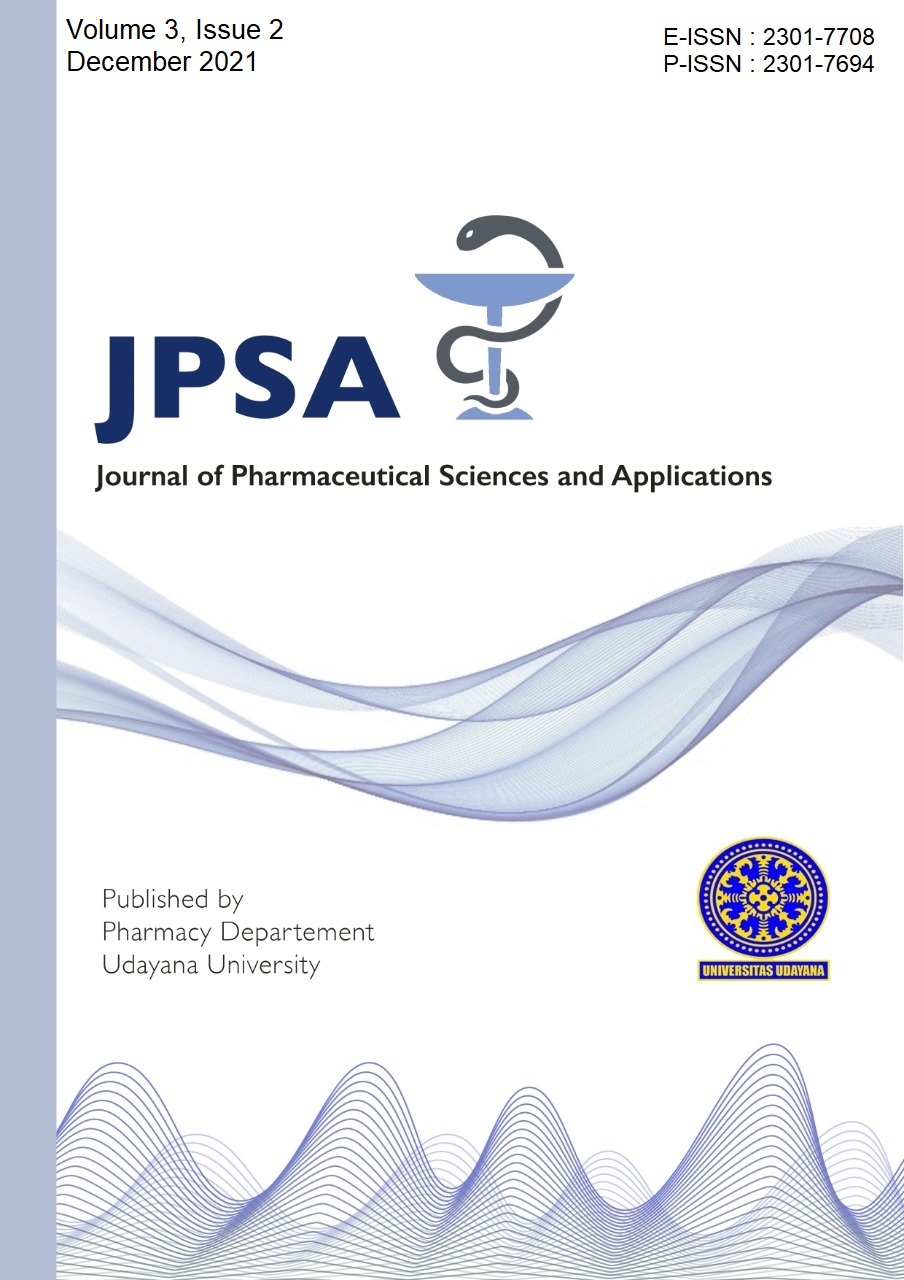ANTIBACTERIAL ACTIVITY TESTING OF HAND SANITIZER GEL EXTRACT OF CORIANDER (CORIANDRUM SATIVUM L.) SEEDS AGAINST STAPHYLOCOCCUS AUREUS
Abstract
Background: Staphylococcus aureus is a bacterium that causes bacteremia in COVID-19 pneumonitis patients. S. aureus is responsible for 80% of suppurative disease, with the skin surface as its natural habitat. So, maintaining hand hygiene during a pandemic is very important. Currently, people prefer the use of practical hand sanitizers. Most hand sanitizers contain alcohol, which has the potential to irritate. Thus, the active substance of coriander seed extract is used as a substitute for alcohol. Objective: To determine the characteristics of the gel and the concentration of coriander seed extract which gave antibacterial effect against S. aureus. Methods: The resulting hand sanitizer gel was then tested for characteristics and antibacterial activity against Staphylococcus aureus by the Kirby-Bauer diffusion method and analyzed by the One Way Anova-LSD method. Result: The results showed that preparations with concentrations of F1(2%), F2(4%), and F3(6%) respectively had inhibition zones of 1.00 ± 0.82 mm, 5.00 ± 0.41 mm, and 5 .25 ± 1.26 mm. Conclusion: Formulas 2 and 3 were able to inhibit the growth of S. aureus with moderate inhibition category. The hand sanitizer gel meets the requirements for organoleptic tests, pH, homogeneity, dispersibility, and adhesion. However, the viscosity of the preparation did not meet the requirements.
Keywords: Coriander Seed Extract, Gel Hand Sanitizer, Antibacterial
Downloads

This work is licensed under a Creative Commons Attribution 4.0 International License.
Authors who publish with this journal agree to the following terms:
Authors retain copyright and grant the journal right of first publication with the work simultaneously licensed under a Creative Commons Attribution License that allows others to share the work with an acknowledgment of the work's authorship and initial publication in this journal.
Authors are able to enter into separate, additional contractual arrangements for the non-exclusive distribution of the journal's published version of the work (e.g., post it to an institutional repository or publish it in a book), with an acknowledgment of its initial publication in this journal.
Authors are permitted and encouraged to post their work online (e.g., in institutional repositories or on their website) prior to and during the submission process, as it can lead to productive exchanges, as well as earlier and greater citation of published work. (See The Effect of Open Access).

This work is licensed under a Creative Commons Attribution 4.0 International License.


 HOME
HOME
















